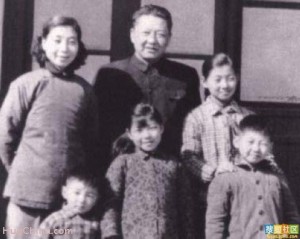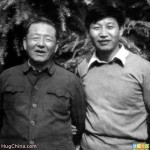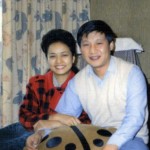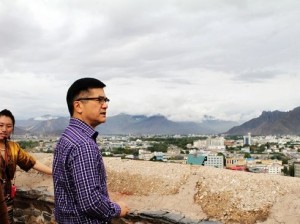
Xi Zhongxun and his family in the late 1950s. Xi Jinping is standing on the right of the front row.
Photo: hugchina
Xi Jinping is the current president of China and the Communist Party chief, and it is anticipated that he will lead China for the next decade.
Mr. Xi was born in Beijing in 1953. His father was Xi Zhongxun, one of the Communist Party’s founding fathers, leading many to perceive Xi Jinping as a “princeling”, a term used to describe senior officials who are thought to owe their success to family connections.
In 1962, before the start of the Cultural Revolution, Xi Zhongxun was removed from his position of vice-premier and ultimately imprisoned. Meanwhile, at the age of 15, Xi Jinping was sent to work for seven years in the village of Liangjahe which is several hundred miles south west of Beijing in Shaanxi province, and where many people live in cave dwellings.
Mr. Xi went on to study chemical engineering at Tsinghua University in Beijing. After several failed attempts join the Communist Party, he was accepted in 1974. Mr. Xi acted as local party secretary in Hebei province and continued to rise through the ranks.
Until recently, Mr. Xi’s wife, the folk singer Peng Liyuan, was the more well-known of the two. They have a daughter named Xi Mingze who is currently studying at Harvard University.
Xi Jinping is thought to be a capitalist with a pro-business stance. In 2005 he stated that “government should be a limited government”.
Regarding Tibet, Mr. Xi is expected to continue the party’s stance. In July of last year he said that the Chinese government “should thoroughly fight against separatist activities by the Dalai clique by firmly relying on all ethnic groups… and completely smash any plot to destroy stability in Tibet and jeopardize national unity.”
Last March, he met Tibetan delegates to discuss political and administrative measures to end the Tibetan self-immolations. However, the Chinese authorities have launched a more severe crackdown against Tibetans, blaming the Tibetan government-in-exile for orchestrating the protests.







 Print
Print Email
Email